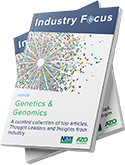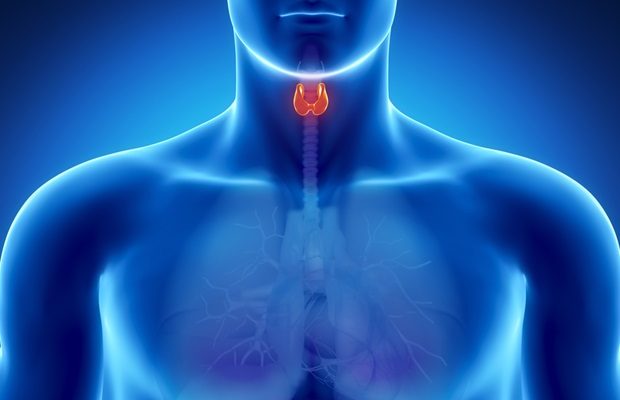Systematic review of 32 studies with 1.3 million participants uncovers new connections between the thyroid and the heart.
It has been known for more than 200 years that severe thyrotoxicosis may lead to cardiac arrhythmia (irregular heartbeat), one of the major reasons for sudden cardiac death. However, the risk associated with mild hyperthyroidism or hypothyroidism hasn't been understood so far. A systematic evaluation of 32 studies with 1.3 million participants shows: even slight deviations in thyroid function can increase the risk of serious cardiovascular diseases.
This puts our understanding of the interaction between the thyroid gland and the heart on a new footing and might pave the way to personalized preventive care."
Dr. Johannes Dietrich, Associate Professor, Department of Medicine at St Josef Hospital, Clinic of Ruhr University Bochum, Germany (RUB)
The researchers published their work in the journal Frontiers in Cardiovascular Medicine on 15 August 2022.
For the study, the heart and hormone researchers at RUB collaborated with a clinician scientist/hormone specialist affiliated with Tan Tock Seng Hospital, the Nanyang Technological University's Lee Kong Chian School of Medicine and Duke-NUS Medical School in Singapore.
How should mild thyroid dysfunctions be treated?
Today, overt thyroid dysfunction is recognized as an established risk factor for major adverse cardiovascular events (MACE). However, the situation remained equivocal in mild thyroid dysfunction. "Whereas in some studies, minimal elevations of thyroid hormones and even high-normal concentrations within the reference range for healthy people predicted an increased risk for sudden cardiac death, other studies hadn't shown such a correlation," explains Johannes Dietrich. Until very recently, the jury was therefore still out on whether to treat those with subclinical forms of hyperthyroidism and hypothyroidism.
Genetics & Genomics eBook

In order to gain a better understanding, a fresh systematic review by the international team analysed the results of 32 studies on this issue. In a pooled statistical evaluation with consecutive meta-analysis, the researchers found both subclinical hypothyroidism and subclinical hyperthyroidism to predict the risk for cardiovascular mortality. In particular, serum concentrations of the free thyroid hormone T4 (FT4) correlated directly with the probability of cardiac death and other adverse cardiovascular events.
Two different patterns
"The results suggest that cardiovascular risk increases continuously with the FT4 concentration, whereas a complex U-shaped risk relationship exists with the concentration of the controlling hormone thyrotropin, i.e. TSH," elaborates Johannes Dietrich. This dualism may be explained by two different patterns of thyroid-mediated arrhythmia.
In one form ("dyshomeostatic type"), primary thyroid disease directly elevates the concentration of thyroid hormones and thereby increases the cardiovascular risk. In the other form ("allostatic type"), genetic factors, chronic stress and psychological strain increase the set point of the regulatory circuit between the pituitary gland and the thyroid gland, so that the indirectly increased FT4 concentration also promote arrhythmia.
Individual prevention and treatment
"The results of this study might pave the way to a personalized preventive strategy for heart outcomes," conclude the authors. "Moreover, thyroid function might serve as a biomarker for the respective mechanism of origin in patients harboring cardiac arrhythmia, helping to tailor individually optimized medication regimen."
Ruhr-Universitaet-Bochum
Müller, P., et al. (2022) Minor perturbations of thyroid homeostasis and major cardiovascular endpoints – physiological mechanisms and clinical evidence. Frontiers in Cardiovascular Medicine. doi.org/10.3389/fcvm.2022.942971.
Posted in: Medical Science News | Medical Research News | Medical Condition News
Tags: Arrhythmia, Biomarker, Chronic, Genetic, Heart, Hormone, Hospital, Hyperthyroidism, Hypothyroidism, Medical School, Medicine, Mortality, Pituitary Gland, Stress, Sudden Cardiac Death, Thyroid, Thyroid Disease
Source: Read Full Article
